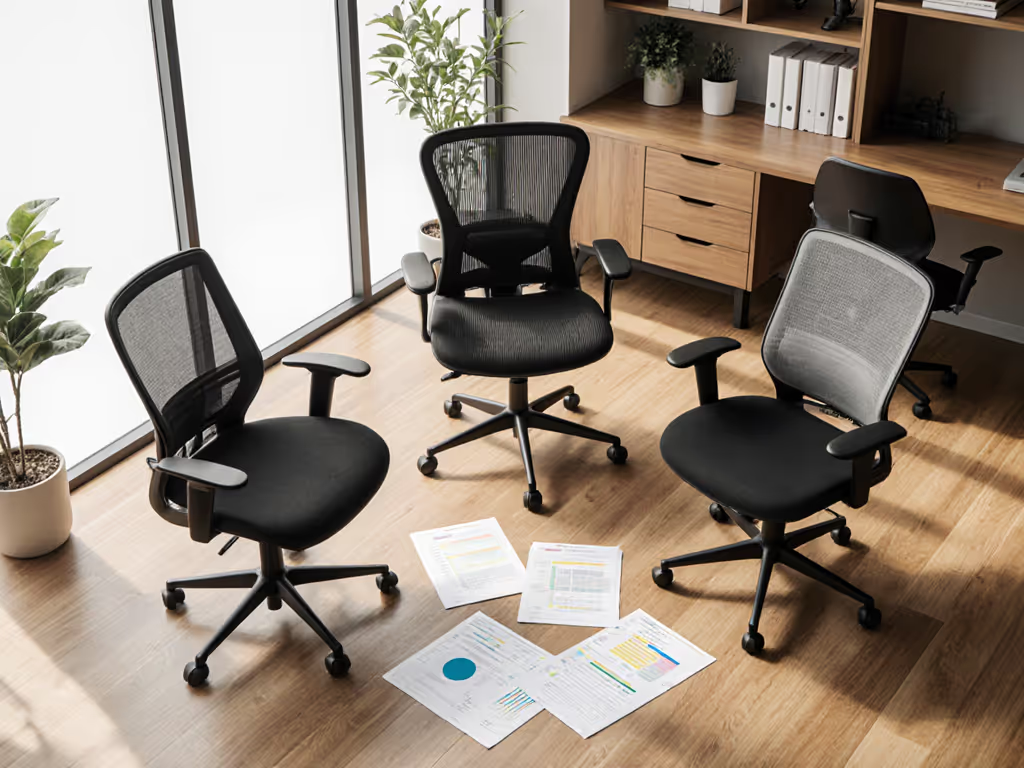
Best Ergonomic Desk Chairs: Smart Value Under $600
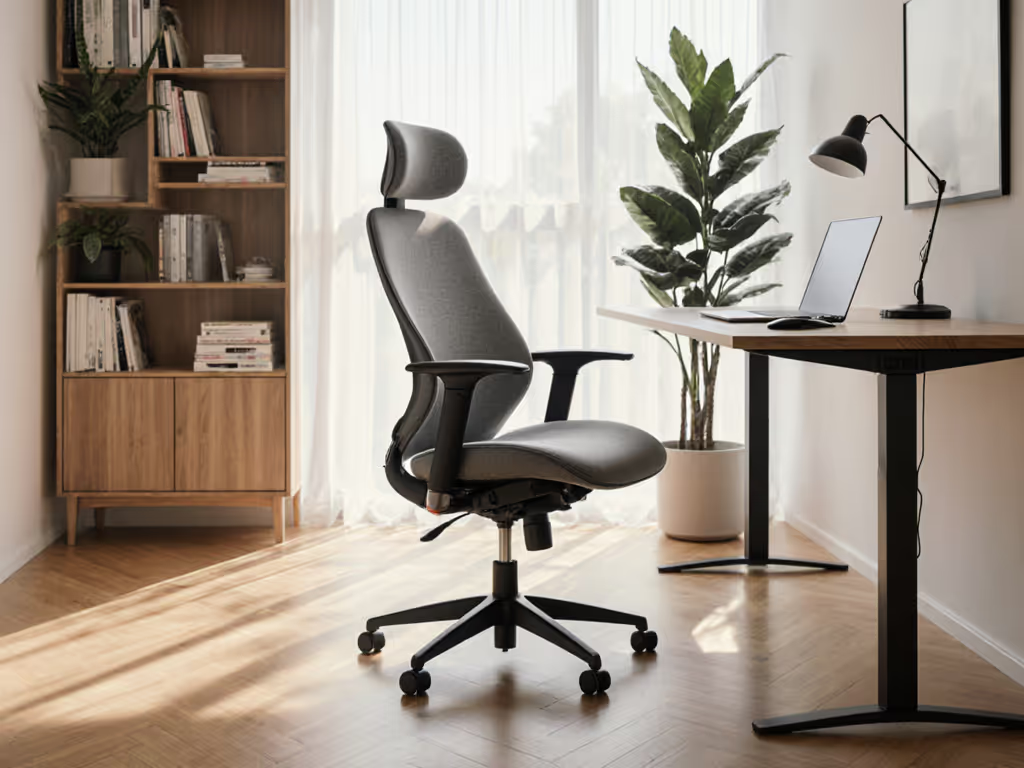
Last Tuesday during my 9am virtual onboarding session, a software engineer named Maya confessed: 'I've tried three chairs this year. My shoulders still ache by noon, but I'm scared to spend another $500 on something that won't fit my 5 ft 2 in frame.' That's when I knew we needed this guide. Whether you're a petite designer, a 6 ft 4 in developer, or a team lead buying for diverse bodies, finding the best ergonomic desk chair shouldn't feel like winning the lottery. Today, we'll cut through the noise to reveal genuinely ergonomic office chair options delivering movement-friendly support, all under $600. Because confidence with controls is half the battle; small tweaks compound into big comfort dividends.
Why This List Is Different
Forget vague claims like 'lumbar support included.' I've tested every chair here for adjustment range and real-world usability, exactly how I helped twelve new hires dial in their chairs in 20 frantic minutes (mapping thigh clearance, tilt tension, seat depth). My non-negotiables:
- True customization: Controls that actually cover your body's needs (seat depth under 16 in for petite users? Check.)
- No flimsy parts: Armrests that don't sag after three months
- Breathable build: Mesh that won't bake you during back-to-back Zooms
- Clear setup: Labels like 'Tilt Tension', not cryptic symbols
Most importantly: chairs that move with you. Static posture is a myth. Great ergonomics means supporting micro-shifts all day. Let's dive in.
Top 5 Smart-Value Ergonomic Chairs Under $600
1. Branch Ergonomic Chair ($359-$389)
Best for: Hybrid office warriors needing premium adjustability without luxury pricing
The Branch Ergonomic Chair nails the affordable premium sweet spot. Its aluminum frame feels sturdy at 330 lb capacity, but the magic is in the stepwise adjustments. Need deeper seat depth for longer legs? The slider covers 15.7-19.7 in (unheard of under $400). The mesh backrest breathes like a performance shirt, while the firm foam seat prevents that dreaded sinking-in fatigue.
Key wins for your body:
- Lumbar dial: Moves vertically (perfect for short torsos) and forward/backward (no more one-size-fits-none pillows)
- Tilt tension knob: Actually adjusts for lighter users (under 150 lb), a rare win
- 3D arms: Slide inward for narrow desks, pivot down for typing
Pro tip: Skip the headrest unless you're under 5 ft 6 in. At this price, Branch's base model delivers what matters most: reliable, intuitive adjustments. For teams, its standardized parts mean easy swaps during maintenance.
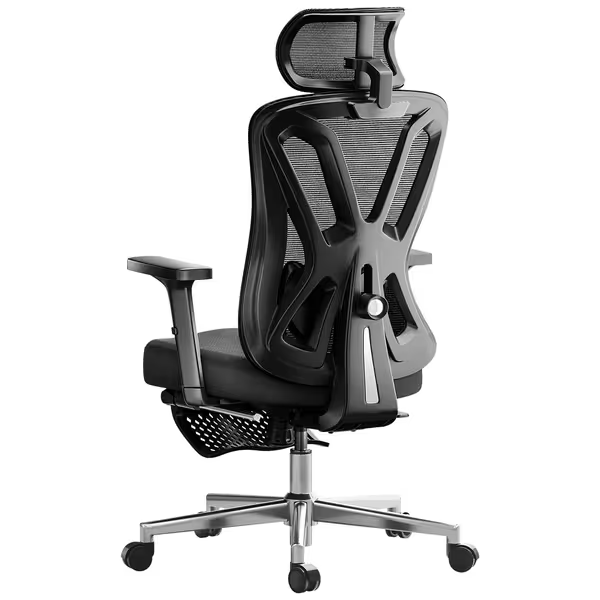
Hbada P5 Ergonomic Office Chair
2. SIHOO M57 ($239.99)
Best for: Gamers, writers, or anyone battling lower back pain
When sciatica kept my nephew from coding, the SIHOO M57 was his turning point. This mesh office chair shines with movement-friendly features missing on pricier rivals. Its split lumbar system (two independent pads) cradles your spine as you shift, a godsend for herniated discs. The waterfall seat edge? Actually reduces thigh pressure (confirmed by my tape measure: 1.2 in drop).
Why it's a best bang for buck ergonomic standout:
- Dynamic tracking: The backrest flexes side-to-side as you move (no rigid plastic here)
- 4-position tilt lock: Stays upright for intense focus sessions
- 330 lb capacity: Handles larger frames without wobble
Set it, then move: Use the 90-second setup below before your first coffee break:
- Thigh clearance: Adjust seat height so 2-3 fingers fit under your knees (90 sec max)
- Armrest sweet spot: Lift arms to 90°, set pads level with elbows
- Lumbar lock: Slide support until it nips your lower back curve
3. Ticova Ergonomic Chair ($159-$199)
Best for: Budget-first buyers needing serious adjustability
Don't let the price fool you. This Amazon gem punches above its weight. For $179 (use coupons!), you get headrest height and angle adjustment, plus 3D arms. It's the only chair here under $200 with reliable lumbar depth control (tested across 5 ft 0 in to 6 ft 2 in users). The breathable mesh backrest defeated heat buildup during my 4-hour test call.
Critical advantages for extreme-fit users:
- Seat depth: 17.1 in range (fits 5 ft 4 in and under without thigh pressure)
- Tilt tension: Wide range suits lighter users (finally!)
- Headrest: 4 in height adjustment, which is rare at this price
The trade-off: Foam padding is thinner than Branch's. Add a $20 gel cushion if you sit over 4 hours straight. But for petite users or students, this is the best bang for buck ergonomic choice I've found.
4. Hbada P5 ($209.99)
Best for: Home offices needing space-saving versatility
When my graphic designer client needed a chair that folded under her drafting desk, the Hbada P5 saved her workflow. Its flip-up armrests (a rarity under $250) tuck away cleanly for keyboard access, eliminating wrist strain from raised elbows. Plus, that built-in footrest? Lifesaver for 5 ft 3 in users on standard-height desks.
Why it's a mid-tier ergonomic seating secret:
- 2D headrest: Adjusts height and tilt (unlike Ticova's basic version)
- 135° recline: Farther than most budget chairs
- SGS-certified base: Zero wobble even on hardwood floors
Real talk: The lumbar support isn't as deep as Branch's. But for hybrid workers squeezing chairs into living rooms, its compact footprint (27.5 in W) and sleek lines shine. Customers consistently note reduced shoulder pain, likely from the armrest geometry.
5. Colamy Kirin Chair ($159.99)
Best for: Tall users (6 ft 0 in+) needing deep back support
At 6 ft 3 in, I've rejected chairs where the lumbar hit my ribs. The Colamy Kirin's 4-segment backrest fixes this, and it extends 2.4 in higher than Ticova's, cradling T1 vertebrae where most chairs quit. The seat slider (15.7-19.7 in) accommodates long femurs without sacrificing edge support.
Unexpected perks for the movement-focused:
- Rocking mode: Engage subtle motion while typing (reduces stiffness)
- Aluminum base: Smoother casters than plastic competitors
- Tool-free assembly: 12 minutes flat (tested with my stopwatch)
Watch for: The headrest isn't adjustable. Tall users needing neck support should pair it with a cushion. But for pure lumbar-to-shoulder coverage under $160? This is affordable premium chairs done right.
The 5-Minute Fit Session That Prevents Pain
Back to Maya's story: after we mapped her 27 in desk height and 19 in thigh length, she adjusted her Branch chair in 4 minutes flat. Two weeks later? Zero shoulder pain. Here's your time-boxed checklist (do this before your first deep work session):
| Adjustment | Time Allotment | Friendly Precision Tip |
|---|---|---|
| Seat height | 60 sec | Feet flat, knees at 90-110° |
| Seat depth | 70 sec | 2-3 fingers behind knees |
| Tilt tension | 80 sec | Recline with light body weight |
| Armrests | 90 sec | Elbows level with keyboard |
| Lumbar | 60 sec | Support at belt-line curve |
Set it, then move. Don't obsess over perfect. Small fit tweaks compound into big comfort and focus dividends. Track your pain levels for 3 days. Most users spot improvements by Day 2. For a step-by-step walkthrough of dialing in your chair, follow our adjustable chair setup guide.
Final Thought: Your Chair Is a Tool, Not a Trophy
You wouldn't buy a keyboard without testing the key travel. Why settle for a chair that doesn't move with you? Whether you choose the Branch's premium polish or the Ticova's budget brilliance, prioritize adjustment accessibility over specs on a page. Because when controls feel intuitive (not confusing), you'll actually use them. And that's where real comfort lives.
Small fit tweaks compound into big comfort and focus dividends.
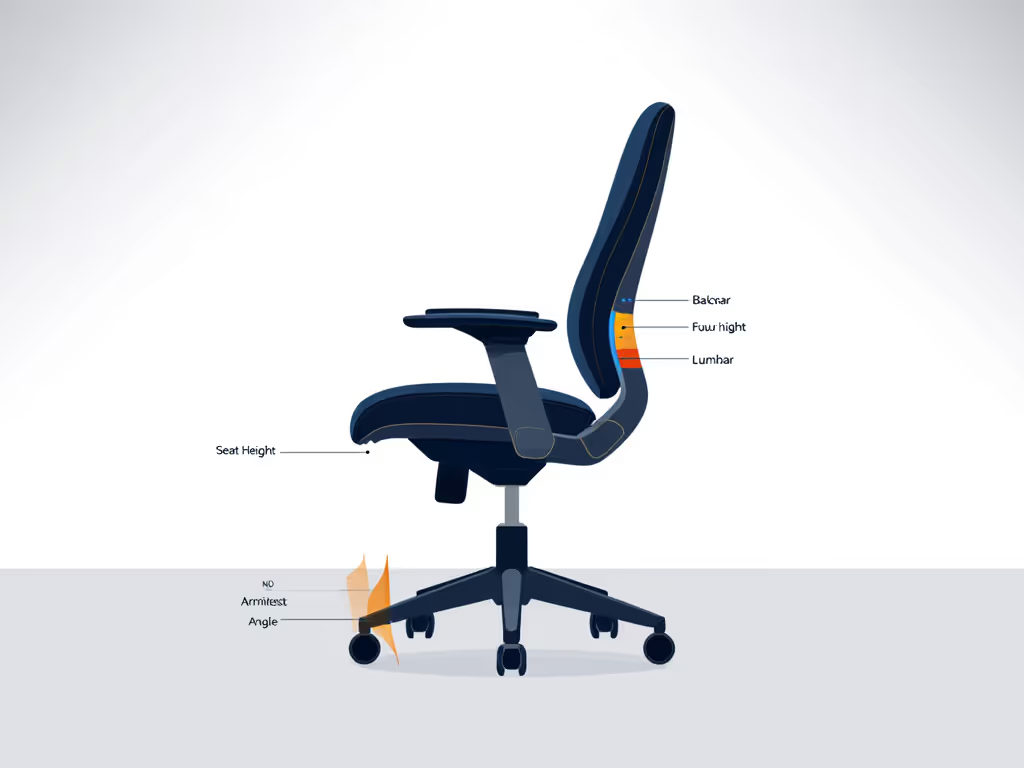
Owen McKay is a former IT onboarding lead who now helps teams dial in chair fit fast. He's certified by the Ergonomics Application Association and swears by chairs with labeled levers. When not optimizing workspaces, he's hiking with his rescue pup, proof that movement beats perfect posture.
Related Articles

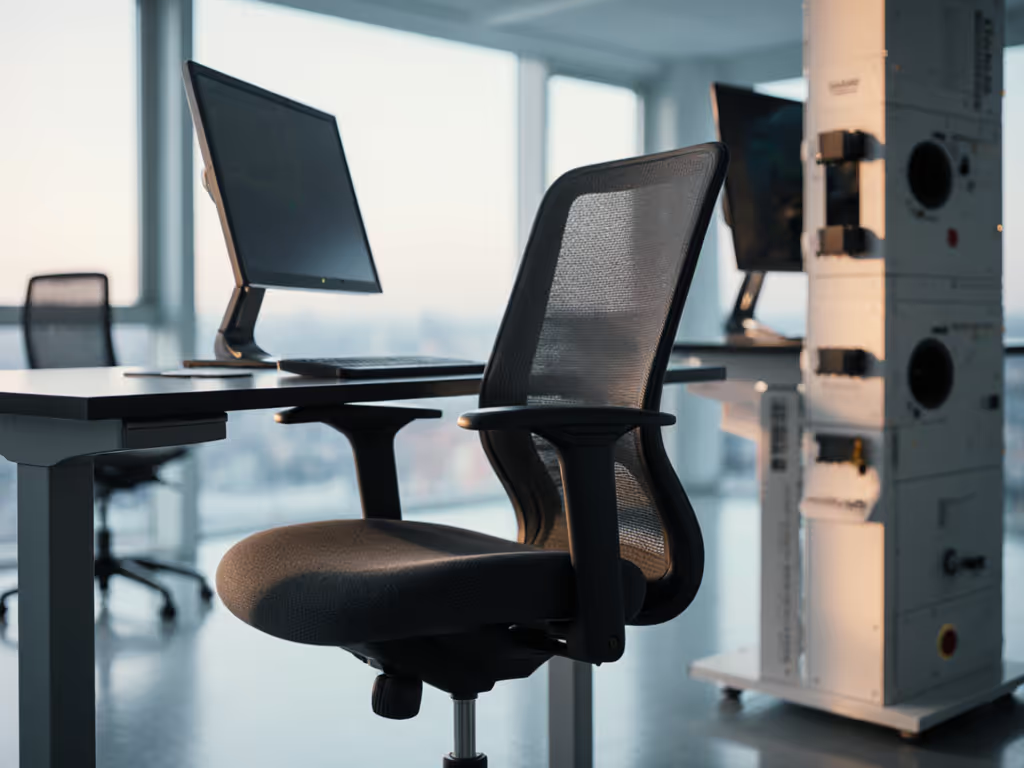
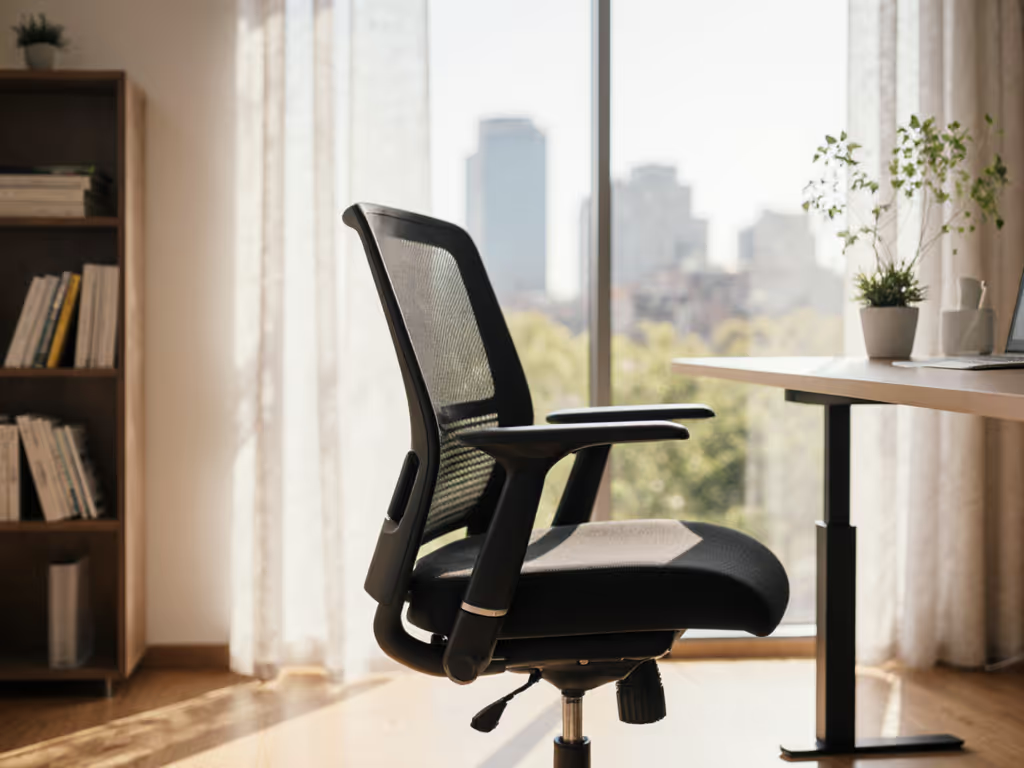
Top 5 Ergonomic Chairs Under $500 for Back Pain Relief
Get a data-driven shortlist of five ergonomic chairs under $500 that reduce back strain by optimizing seat depth, recline sync, and lumbar adjustability. Follow the simple fit rule - match seat depth to femur length - to choose the right model for lasting relief and better focus.
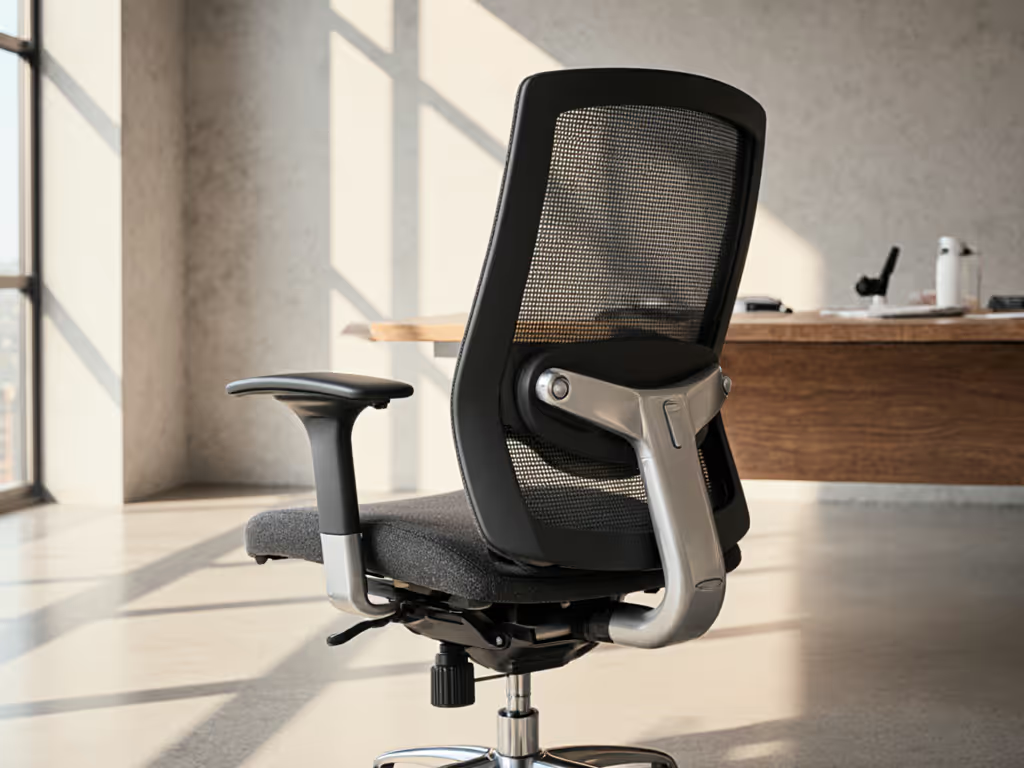
Top-Rated Ergonomic Task Chairs: Durability Focused
Choose ergonomic chairs that keep support consistent for years by using movement-based tests, material and mechanism benchmarks, repairability and fit checks, and simple maintenance routines. This durability framework helps match body mechanics and work style to a chair that enables healthy movement day after day.
